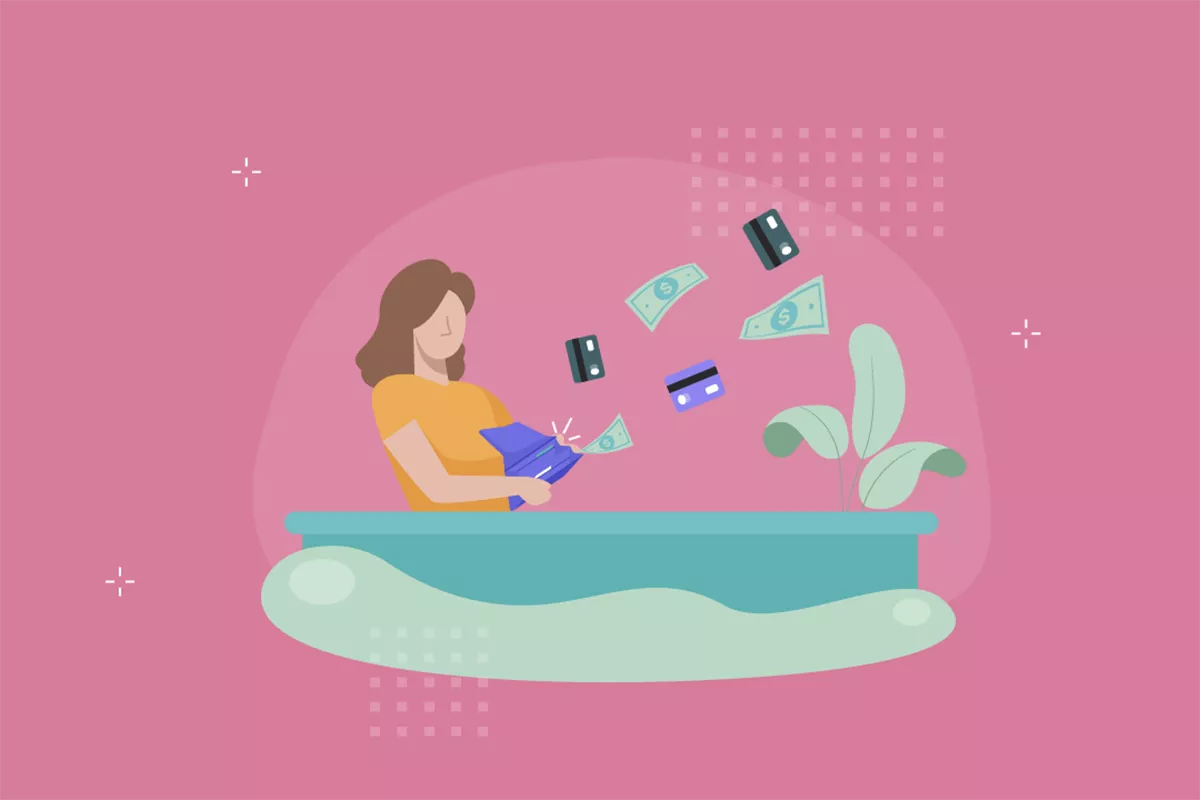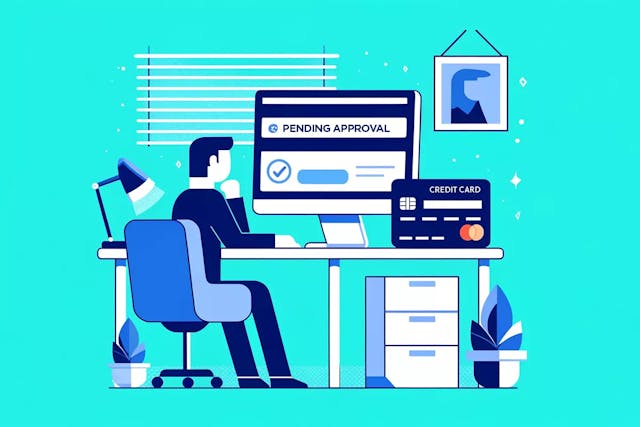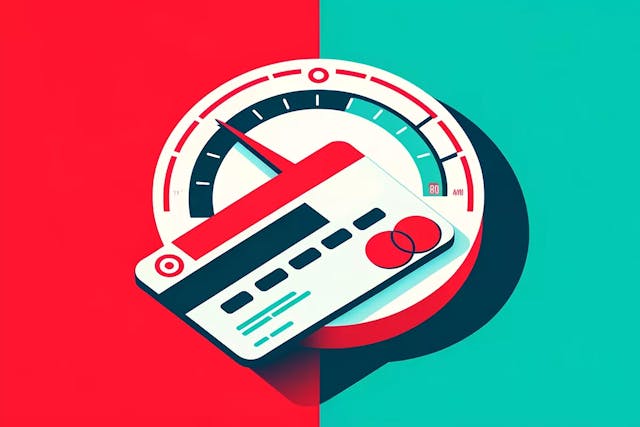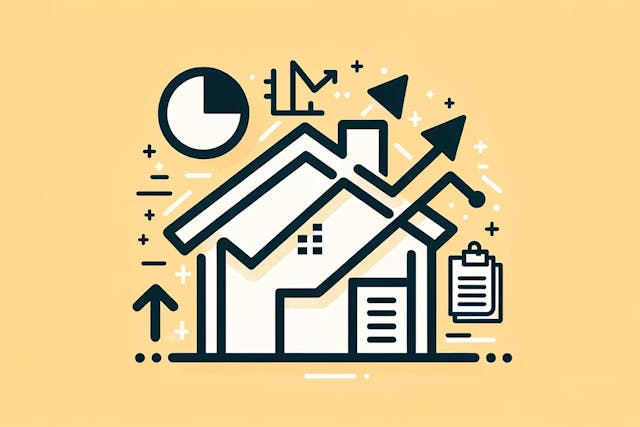If you are struggling with credit card debt and need a solution, debt consolidation is one way for you to get your bills, balances, and loans under control. Credit card debt consolidation is not for everyone — and there are different methods that you can choose from to consolidate credit card debt — so it’s important to weigh all of your options before making a deal.
What Is Debt Consolidation?
Debt consolidation — sometimes called bill consolidation or loan consolidation — is a personal finance strategy that allows you to combine multiple bills, loans, or credit card balances into a single monthly payment.
For instance, if you have several open credit cards with balances, you can consolidate your credit card debt into a single card or loan. This enables you to make one monthly payment to reduce your overall credit card debt rather than several monthly payments spread across multiple cards.
Consolidating credit card debt minimizes the number of accounts that you have to manage and make monthly payments on. If you consolidate your balances onto a card with a lower interest rate than your original card, this can drastically reduce the amount of interest that you must repay to the lender. It will also reduce the overall amount of time that it will take for you to repay your credit card debt.
With that being said, your eligibility for debt consolidation loans depends on your credit score, how much credit card debt that you have, and other factors.
When to Consolidate Debt
There is no hard-and-fast rule as to whether you should consolidate debt, so it’s your responsibility to weigh out your options before making a decision. In general, it makes sense to take out a credit card debt consolidation loan or transfer your balances to a different credit card if:
- You qualify for a 0% or low-interest credit card or debt consolidation loan
- You have a reliable positive cash flow
- You have strong money management skills
- You have strong time management skills
When deciding whether or not it makes sense for you to take out a debt consolidation loan, you may need to do some number crunching. Debt consolidation is meant to save money and time — if it does not do these two things, it may not be in your best interest to take out a debt consolidation loan or do a balance transfer.
Debt Consolidation Sample Scenario
You have three credit cards, each with a balance of $5,000. Each of them has a different interest rate:
- Card A: 16.99%
- Card B: 18.99%
- Card C: 20.99%
By using an online debt repayment calculator, you can see that you could expect to pay off:
- Card A in 32 months with $1,215 going toward interest
- Card B in 33 months with $1,414 going toward interest
- Card C in 34 months with $1,632 going toward interest
This, of course, assumes that you make consistent, on-time monthly payments of $200 to each card, and you do not charge any other transactions to these credit cards as you’re paying off your debts.
One option would be to combine the balances on these three credit cards onto a single balance transfer card with 0% APR. If the card has 0% APR for 24 months, you can plan to pay $625 on one card for the next two years — only $25 per month more than you are currently paying across multiple cards.
In total, you would save 10 years of paying off credit card debt and a total of $4,261 in interest alone.
When Not to Consolidate Debt
Debt consolidation loans are not for everyone, however. If you are dealing with money and time management issues that got you into credit card debt in the first place, you likely do not want to take out another loan — especially one that could cause you to pay even more in interest than you are currently paying.
You probably also do not want to consolidate debt if you have more debt than you can wrap your head around. It will likely dig you into a deeper hole.
Rather than taking out a debt consolidation loan, you should seek professional debt relief assistance or implement a strict credit card debt payoff system. Popular methods include:
- Debt snowball: Make minimum payments on all credit card debt, then pay off the rest of your credit card debt in the order of smallest to largest
- Debt avalanche: Make minimum payments on all credit card debt, then use extra funds to pay off the credit card debt with the highest interest rates first
Each method has its own advantages and disadvantages. The snowball method may cause you to pay more in interest, but you can typically chip away at your credit card debt quicker, which can help keep you motivated on your journey to financial freedom.
The avalanche method, however, takes a great amount of financial discipline, but it tends to reduce the amount of interest that you will pay over time.
No matter which method that you choose, it’s important that you stay vigilant on your journey, make on-time payments, and manage your spending so as not to grow your credit card debt.

How to Consolidate Debt
There are several ways to consolidate credit card debt, but some are more risky than others. Taking out a home equity loan or 401(k) loan are options. However, you could stand to lose a lot, like your home or retirement savings, if you default on one of these payments.
If you are struggling with credit card debt, it is best to consolidate your balances in a more conservative way through credit cards or personal loans to avoid serious personal and financial damage. Some ways that you could more safely consolidate debt include:
- Balance transfer credit card
- Debt consolidation loan
- Debt management plan
1. Balance transfer credit card
Advantages
✅ 0% introductory APR
Disadvantages
❌ Inflated APR after introductory period
❌ Balance transfer fee
❌ Requires good or excellent credit score
A balance transfer credit card can be a smart move if you qualify for one. The 0% introductory APR allows you to pay off your credit card debt quicker and with less interest if you make consistent, on-time monthly payments.
However, it’s important for you to maintain a strict monthly payment schedule. The standard introductory time period for balance transfer cards is 6 to 18 months. If you do not repay your credit card debt by the end of the introductory period, a standard credit card interest rate will kick in.
Unfortunately, the rates on these credit cards tend to be higher than average credit cards, which could force you to pay an exorbitant amount of money in interest to your lender.
Luckily, balance transfer credit cards do not tend to come with annual fees; however, you’ll likely get stuck with a balance transfer fee, which is charged for transferring a balance from one credit card to another credit card. The fee tends to hover around 3% to 5% of the amount transferred. You can either find a credit card with no balance transfer fee, or negotiate to have the credit card fee waived before initiating the transfer.
2. Debt consolidation loan
Advantages
✅ Pre-qualification means no hard inquiry
✅ Low interest rates for people with good or excellent credit
Disadvantages
❌ Inconsistent terms between banks, credit unions, and lenders
❌ Higher interest rates for people with poor credit
A credit card debt consolidation loan is a type of personal loan and another form of debt repayment offered by a lender, bank, or credit union. Similar to balance transfer credit cards, debt consolidation loans typically come with low introductory rates that expire after a certain period of time, so it’s important to manage your credit card repayments meticulously.
Many lenders allow you to get pre-qualified for debt consolidation loans. When you get pre-qualified before submitting an official application for the personal loan, the lender only runs a soft inquiry on your credit report rather than a hard inquiry, which means your credit score will not be damaged. Pre-qualification allows the lender to estimate your loan terms and rates before you apply so you can decide whether it’s the best decision for you.
Your rates and terms depend heavily on your credit score. In general, someone with a positive credit score is rewarded with lower interest rates and larger loan amounts whereas someone with a lower credit score won’t have access to these offers.
Rates, fees, and repayment timelines vary greatly among financial institutions, so it’s essential that you read your terms carefully before accepting an offer to make sure that the deal helps you save time and money.

3. Debt management plan
Advantages
✅ Plans vary based on your financial situation
✅ No hard inquiry during application process
✅ Access to financial counseling and assistance
Disadvantages
❌ Include monthly fees
❌ Limits on the types of accounts accepted into debt management plans
Aside from a debt consolidation loan, you can also conquer debt through a debt management plan, which is a form of debt consolidation offered through credit counseling agencies. With a debt management plan, you follow a structured monthly payment program based on your financial situation.
Since these plans do not involve loans, there is no credit check process that would affect your credit score. You also have access to reduced rates through many agencies, your program is carefully tailored to fit your financial needs and abilities, and you have access to financial counseling and assistance along the way.
Unfortunately, debt management plans often come with monthly fees. You may also not be able to incorporate all debts into your repayment plan, as secured debts — such as mortgages and auto loans — are not eligible through many agencies.



